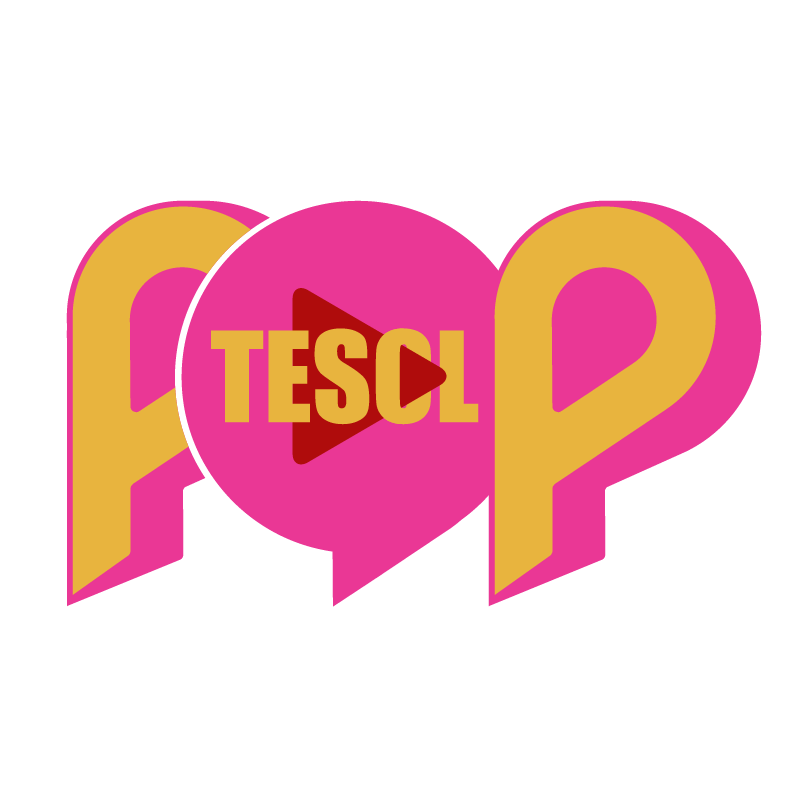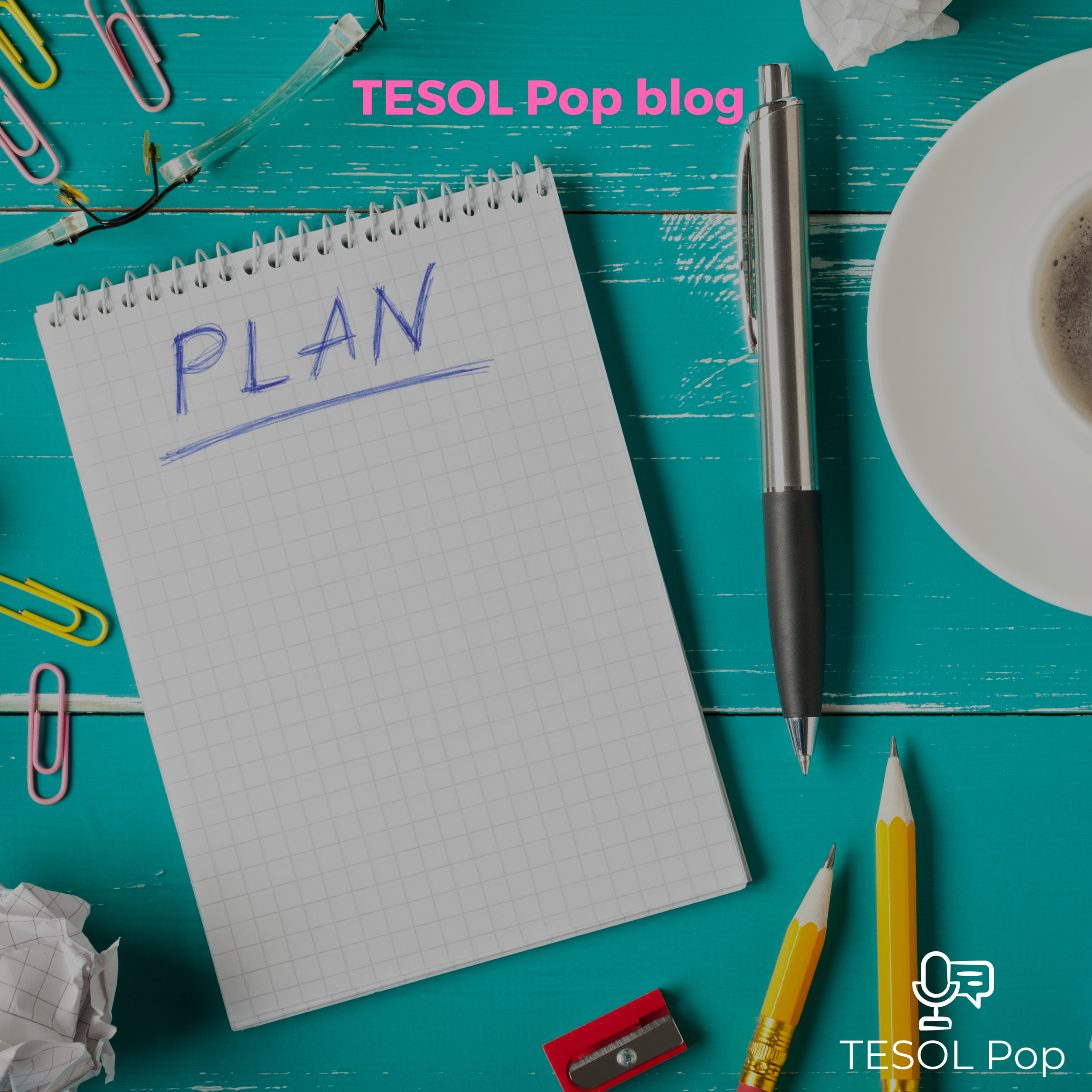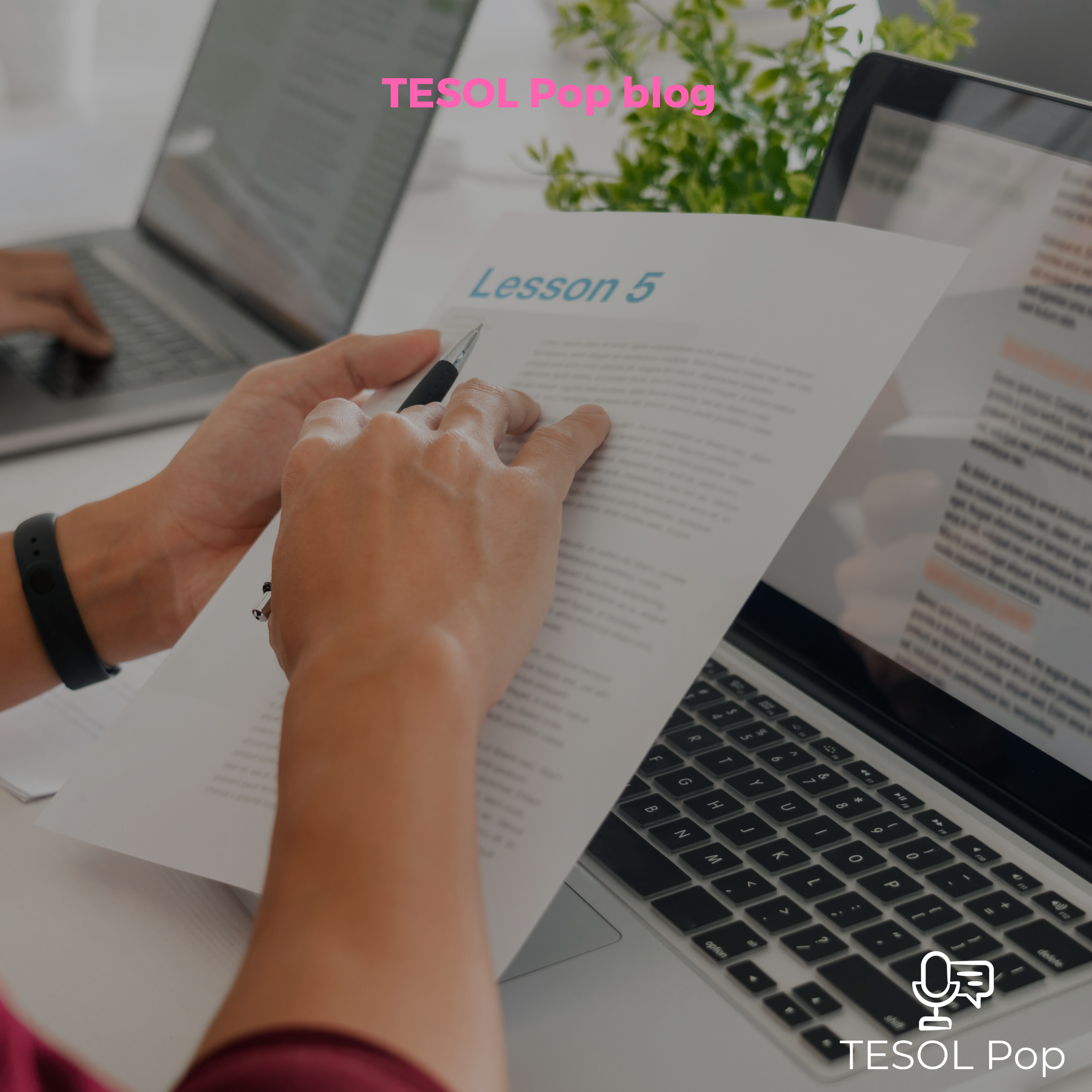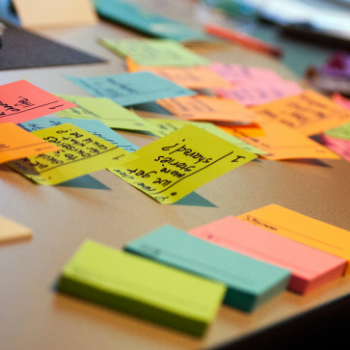S1E3: Lesson Planning Using Present, Practice, and Produce with Eve Conway and Laura Wilkes
Eve and Laura talk about how to stage a lesson using the Present, Practice, Produce (PPP) structure, the type of tasks we can use, and what to keep in mind to ensure a PPP lesson is successful. To read the blog and see an example PPP lesson plan, click here.
Are you looking for more ideas on Lesson Planning?
Director of Studies Jenny Galligan reflects on her recent experimentation with Task-Based Learning (TBL) with her teenage language students. Jenny summarises task-based learning, how she structured a lesson using this approach, and how her students responded to the lesson. Lastly, Jenny shares her teaching tips on using Task-Based Learning so you can experiment with this approach in your classes too.
Teacher Erin Vobornik talks about key principles of Universal Design for Learning (UDL) and how they can be applied to the ESL classroom. Erin shares her own experience and examples of ways in which UDL can be applied to make learning more accessible to various students’ needs.
Teacher Trainer Kevin Clare talks about five priorities to keep in mind when teaching Young Learners (YL). Kevin also shares time-saving tips for lesson preparation and how YL teachers can support their ongoing development.
Engage-Study-Activate (ESA) is a lesson staging model that Jeremy Harmer introduced in 'How to Teach English' in 1997. This flexible lesson model enables us as teachers to tailor input and practice to our students' needs.
Have you tried Test-Teach-Test, Context-Analysis-Practice-Evaluation, or a patchwork Engage-Study-Activate lesson model with your language learners? Discover three alternative ways you can plan your next lesson to keep your learners engaged and motivated.
Although there are many ways to organise a lesson, the merit of PPP is that it provides a clear step-by-step model for new teachers to follow by dividing the lesson into three main stages: Present, Practice and Produce. This blog looks at what happens at each of these stages, the key points to bear in mind when planning a PPP lesson, as well as when PPP is most effective.
Laura is the co-founder and producer of the TESOL Pop podcast, which focuses on bite-sized development for busy English Language teachers. Laura is also the founder of Communicating for Impact, where she trains educators and edupreneurs to use media creatively to grow their community.







Teacher and materials writer Silvina Mascitti shares three lesson plans from her library of free materials at EFL Creative Ideas. Silvina walks through the various lesson stages for each lesson and shares insights into how she uses the materials with her adult learners.